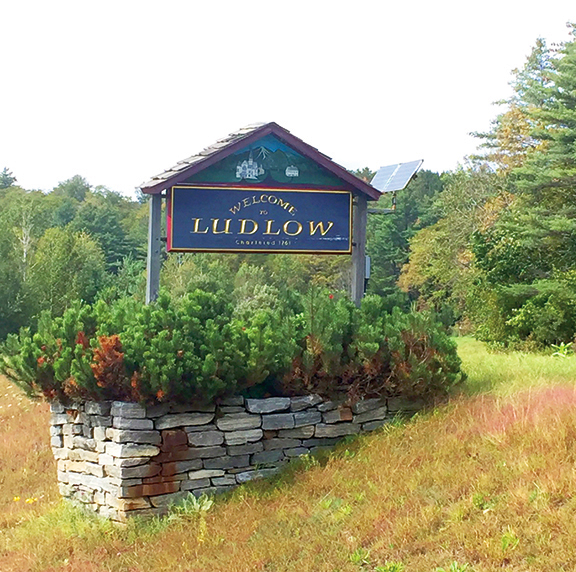LUDLOW, Vt. – The Ludlow Selectboard and Village Trustees met jointly on Monday, June 17, to hold public discussions on two perennial issues facing the municipality. Namely, these were the possible merger of the Town and Village of Ludlow, and a possible 1% local options tax.
Launching into the town and village merger discussion, town manager Brendan McNamara explained that this was to be the first of multiple meetings, but that the consensus of both the selectboard and the trustees was that the merger would be the “best option for the municipality of Ludlow.”

“From my perspective,” McNamara elaborated, “the redundancy of what goes on, just at the administrative side of things, is a burden, which can also contribute to an increase in cost.” McNamara did note that the merger will come with certain issues, such as delineating who pays for water and wastewater service in absence of a town and village border, but that these issues can be addressed as the merger process unfolds. “This will go on the ballot, ultimately,” MacNamara said.
When asked what the negatives of the merger would be for the village specifically, McNamara responded that, “From where I’m sitting, the cons are negligible,” explaining that he believed day to day operations would not be affected to the extent that most residents would notice a change. The main changes, McNamara said, would be operational, and eliminate certain inefficiencies in administration.
The boards then inaugurated a discussion of a potential local options tax, something that has been discussed off and on in the past. This tax would be a 1% tax levied by the municipalities, and could apply to any combination of three categories: retail, room and meals, and alcohol. Of the 1% collected, the State of Vermont would take 30%, leaving Ludlow with 70%. “We have a number of major infrastructure projects coming up that are hundreds of thousands of dollars,” McNamara said. Board member George Tucker explained that, in light of these upcoming projects, if the town does not find an alternative way to fund these projects, it will fall to town property taxpayers.
Several members of the community who spoke were open to the idea of the tax, but wanted to see more data, particularly with regard to how much of the revenue from the tax would be collected from visitors to Ludlow as opposed to locals. One resident who spoke was particularly concerned that, while the money may be earmarked for certain projects in the short term, when those projects are completed, the tax will remain as a permanent burden on Ludlow residents and businesses. Selectboard member Noah Schmidt responded by noting that Killington, for example, had enacted a local options tax, and eventually chosen to repeal it.
The boards ultimately gave consensus to McNamara to begin forming committees to investigate the issues further and eventually make recommendations to the board. More meetings and public hearings to discuss both issues will be held in the future.
The Ludlow Selectboard’s next regular meeting will be held on Monday, July 1, at 6 p.m., in the Heald Auditorium.